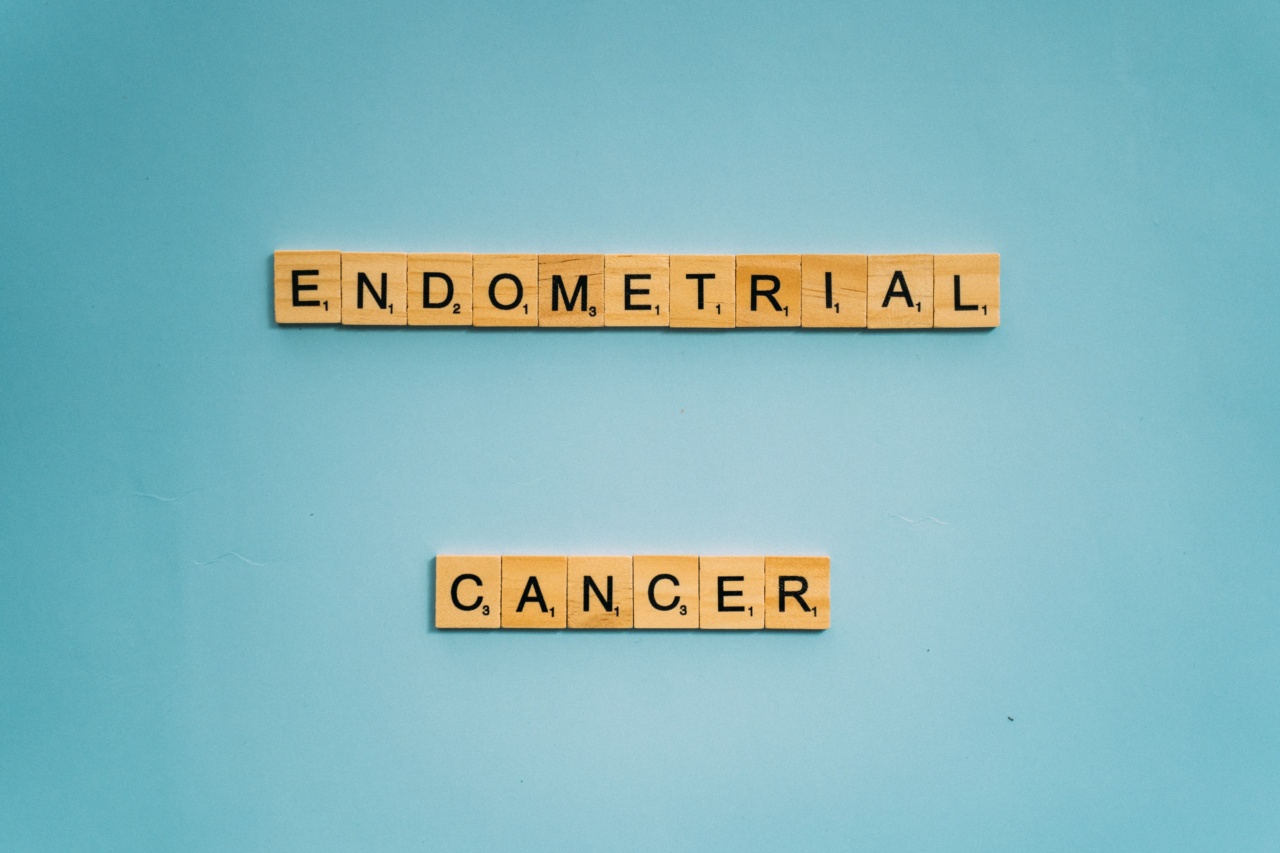Endometrial cancer, also known as uterine cancer, is the most common type of cancer that affects the female reproductive system. It develops in the lining of the uterus, known as the endometrium.
While the exact cause of endometrial cancer is not fully understood, certain risk factors can increase a woman’s chances of developing this disease. Recognizing the signs and symptoms of endometrial cancer is crucial for early detection and treatment. In this guide, we will discuss the key signs of endometrial cancer and provide images to help you better understand what to look out for.
1. Abnormal Vaginal Bleeding
One of the most significant signs of endometrial cancer is abnormal vaginal bleeding. This can include:.
 .
.
– Heavy bleeding between menstrual periods
– Longer or more frequent periods than usual
– Bleeding after menopause
– Spotting or discharge that occurs outside of your normal menstrual cycle.
If you experience any abnormal vaginal bleeding, it is essential to consult with your healthcare provider to determine the cause.
2. Pelvic Pain or Pressure
 .
.
Persistent pelvic pain or pressure can be an indication of endometrial cancer. This pain may appear as a dull ache or sharp cramps in the lower abdomen.
If you notice ongoing pelvic discomfort, it is important to seek medical advice to rule out any serious underlying conditions.
3. Unexplained Weight Loss
 .
.
Unexpected weight loss without changes in diet or exercise habits can be a warning sign of various health issues, including endometrial cancer.
If you notice significant weight loss without any apparent reason, it is advisable to consult with your healthcare professional to investigate further.
4. Difficulty Urinating
 .
.
Endometrial cancer can sometimes cause pressure on the bladder or other nearby organs, leading to difficulty or discomfort during urination.
If you experience changes in your urination patterns or pain while urinating, it is crucial to seek medical evaluation to identify the underlying cause.
5. Pain During Intercourse
 .
.
Endometrial cancer may cause pain during sexual intercourse. If you notice persistent pain or discomfort during sex, it is essential to discuss this symptom with your healthcare provider to determine the cause.
6. Bloating or Enlarged Abdomen
 .
.
In some cases, endometrial cancer can cause bloating or an enlarged abdomen.
If you experience persistent bloating or notice that your abdomen appears larger than usual, it is advisable to consult with your healthcare professional for further evaluation.
7. Changes in Bowel Habits
 .
.
Endometrial cancer may affect the digestive system, leading to changes in bowel habits such as diarrhea or constipation.
If you have unexplained changes in your bowel movements that persist for an extended period, it is important to seek medical advice.
8. Fatigue and Weakness
 .
.
Feeling excessively tired or weak can be a symptom of endometrial cancer. If you experience ongoing fatigue, even after getting adequate rest, it is recommended to consult with your healthcare provider to identify the cause.
9. Anemia
 .
.
Endometrial cancer can cause anemia, which is a condition characterized by a low red blood cell or hemoglobin count. Symptoms of anemia include fatigue, weakness, shortness of breath, and pale skin.
If you experience these symptoms, it is important to seek medical attention for proper diagnosis and treatment.
10. Swelling or Lump in the Pelvic Area
 .
.
In rare cases, endometrial cancer may cause a visible swelling or lump in the pelvic area. If you notice any unusual protrusions or lumps, it is crucial to have them examined by a healthcare professional.
Early detection of endometrial cancer significantly improves treatment outcomes. It is important to be aware of the signs and symptoms discussed in this guide.
If you experience any of these symptoms or have concerns about your reproductive health, consult with your healthcare provider for proper evaluation and guidance.


























